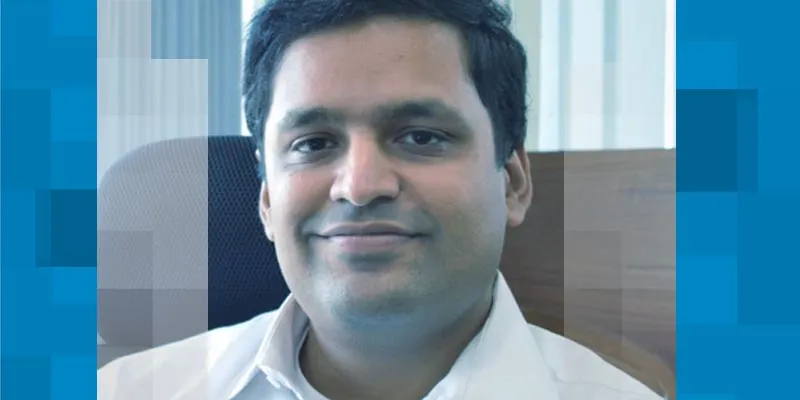A look at Venture Debt with Vinod Murali, MD of Silicon Valley Bank, India
The Indian entrepreneurial ecosystem is evolving and startups being funded have become a regular part of everyday news consumption. There is a lot of noise within the early stage ecosystem but the real game for a company begins once it is in the growth stage. There are multiple ways in which a company raises funds to maintain growth, and here we will look at Venture Debt. Silicon Valley Bank is a venture and growth debt provider for high-growth companies and has been a prominent player in the entrepreneurial ecosystem in the US for three decades with global presence in the UK, Israel, China and India. It has funded companies like Prizm, Snapdeal and Yatra in India.

We spoke with Vinod Murali, the MD of SVB, India Finance, to learn more about the space.
YS: Hi Vinod, tell us about SVB and your journey with it.
VM: SVB provides banking products and services to Venture Capital funds as well as their portfolio companies largely in the technology and life sciences industries. SVB has also invested in several VC funds globally.
SVB India kick started operations towards the end of 2008 with the objective of providing Venture Debt to innovative, VC backed companies in India. Our first client was Prizm Payments which recently got acquired by Hitachi. Since then, we have funded more than 60 transactions across industry segments and have rotated our initial capital more than twice in the process. We were a startup debt business (albeit well-funded) with an interesting idea and a path riddled with challenges.
I was a corporate banker in Citibank (Mumbai) when the opportunity to join SVB presented itself in August 2008 and it felt like a challenging proposition to try and lend money to a segment of companies which were not conventionally seen to be possible. This was prior to the Lehman collapse which was a heady phase in banking so there was a lot of incredulity amongst my peers regarding this career choice. My dad is an entrepreneur and I was always itching for change but had not figured out a specific direction professionally. I found SVB India as a platform to engage with passionate entrepreneurs with real “blood and guts” stories, most of whom were also cool people to hang out with. There is a strong sense of entrepreneurship which runs through our entire team as most of the team members have transitioned from conventional banking jobs.
YS: Tell us a bit more about Venture Debt in the Indian context.
VM: Venture Debt is a counter intuitive proposition where the idea is to provide additional capital to a company in the form of structured debt soon after an equity round is raised. The intent is to improve the company’s cashflow runway so that there is more time to achieve better milestones, create a better product, expand to more markets, hire a stronger team or even acquire a potential target. All these scenarios improve the company’s valuation without taking additional equity. On the flipside, additional capital also gives startups more breathing space when things don’t go to plan and allows them more time to recover.
YS: What is in it for SVB? Who are your competitors?
VM: We do not have any direct competition currently. There is Intelligrow which looks at the angel backed segment but we normally provide debt to companies that have raised at least one round of VC funding and our cheque sizes are larger relatively. We are trying to create a new-age lending model which can support young, innovative companies which are currently dependent predominantly on equity funding. Commercial banks typically do not get comfortable with these kinds of companies as they look for tangible assets and profitability.
YS: Tell us a bit about your deal flow. What kind of companies do you look at?
VM: Deal flow has been very strong over the last few years driven by the fact that we are now better known in the VC ecosystem. Our portfolio includes a diverse range of companies from Faaso’s to Yatra to Snapdeal to EyeQ. We are sector agnostic and evaluate companies which have raised at least one round of VC funding. Our portfolio includes companies which are pre-revenue to $100 MM of revenues. We are comfortable if companies are on a cash-burn mode as they will be investing in growth. We provide secured debt but do not seek extraneous collateral normally.
YS: What are your views on the emerging startup ecosystem in India? Having seen so many companies, what's your take on the evolution?
VM: The Indian VC ecosystem is still quite nascent as we have hardly seen one full cycle of entry-exit for most funds. The euphoria which was there in the market between 2006 and 2008 has vanished and fund raising has become a tough examination of performance across both companies as well as funds. Rounds take longer to close, more deals fall off during diligence and documentation, and there has been a calibration of serious investors. Having said that, there is significant dry powder in the order of $2.5 billion waiting by the sidelines to be invested into the early and growth ecosystem in India over the next 3-4 years. There has been a resurgence of technology over the last few years but the Indian consumption story is still the biggest selling point. While a few companies have managed to create global identities, they have been the exception than the norm and I don’t see this changing very rapidly.
Website: SVB India
Tell us your thoughts on the interview and drop by comments you might have. Vinod Murali can be reached on Twitter @vinodmur







